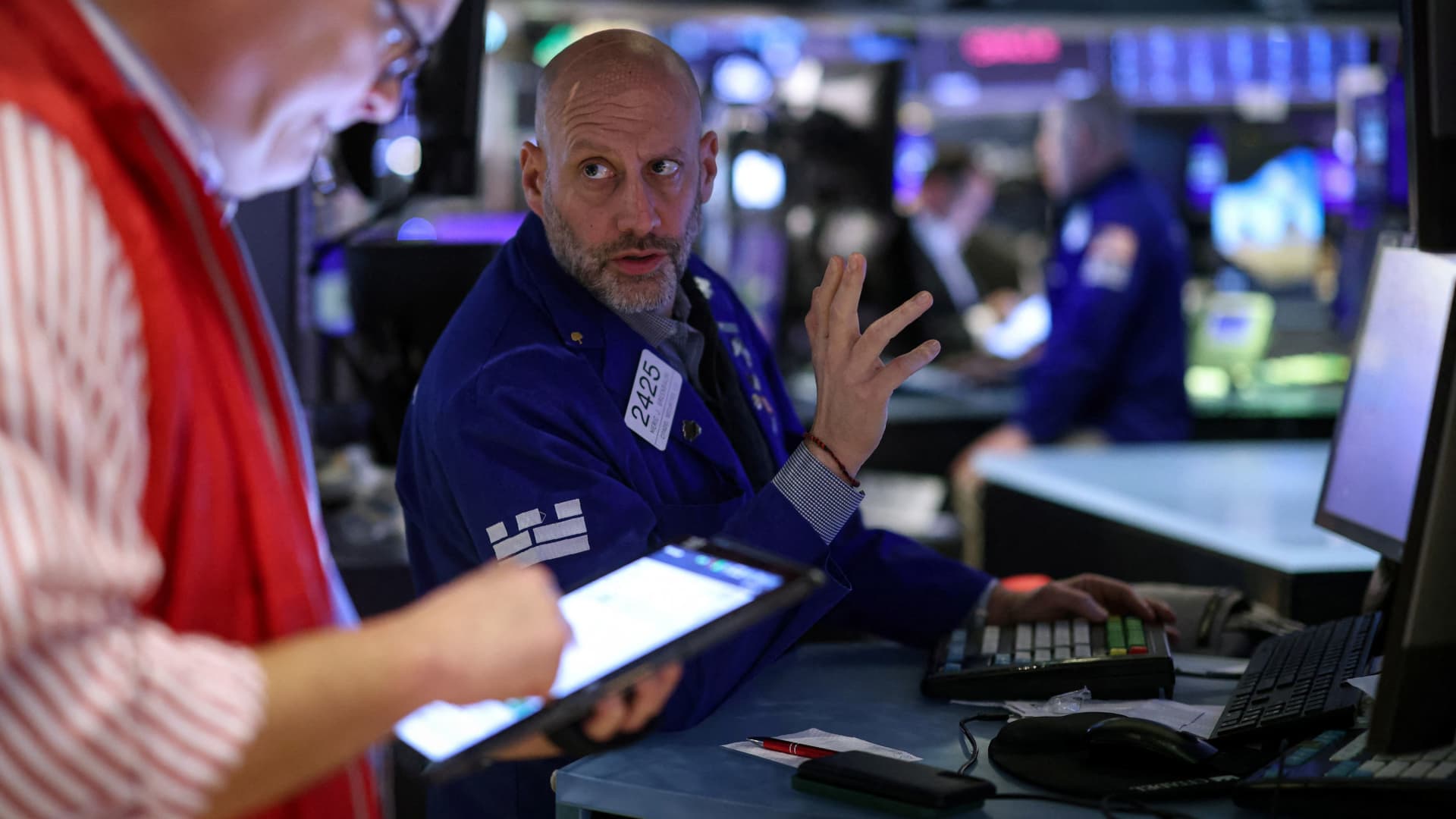Traders work on the floor at the New York Stock Exchange (NYSE) in New York City, U.S., February 23, 2024.
Brendan McDermid | Reuters
U.S. stock futures were little changed Sunday night after the tech-heavy Nasdaq Composite posted a record-high Friday, breaking its 2021 record, as stocks attempt to continue their weeks-long rally.
Futures tied to the S&P 500 fell marginally, while Nasdaq-100 futures ticked slightly lower. Futures tied to the 30-stock Dow Jones Industrial Average slipped 47 points, or 0.1%.
Stocks have been racing higher, fueled by enthusiasm over artificial intelligence, with the Nasdaq soaring to an all-time high on Friday—making it the last of the major stock indexes to reach a record close this year. The S&P 500 and the Nasdaq last week reached their seventh weekly gain in eight, while the Dow ended the week in the red.
“The recent rally has driven the share of market cap in stocks with extremely high valuations to levels similar to those reached during the euphoria of 2021,” David Kostin, Goldman Sachs chief U.S. equity strategist, wrote in a Friday note. “But the prevalence of extreme valuations today looks far less widespread than in 2021 after adjusting for market concentration.”
With markets having digested a better-than-expected earnings season and a hotter-than-expected consumer price index report, investors now are turning their attention back to inflation.
This week, investors will look for clues about the future direction of interest rates from Federal Reserve Chair Jerome Powell’s monetary policy updates to the House of Representatives on Wednesday and to the Senate on Thursday.
The ADP Employment Survey and January job openings data will be released on Wednesday, providing further insight into the labor market. Manufacturing and nonfarm payrolls data for February will also be released on Friday.





